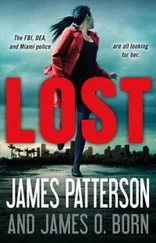Джеймс Хилтон - Lost Horizon
Здесь есть возможность читать онлайн «Джеймс Хилтон - Lost Horizon» весь текст электронной книги совершенно бесплатно (целиком полную версию без сокращений). В некоторых случаях можно слушать аудио, скачать через торрент в формате fb2 и присутствует краткое содержание. Жанр: Современная проза, на английском языке. Описание произведения, (предисловие) а так же отзывы посетителей доступны на портале библиотеки ЛибКат.
- Название:Lost Horizon
- Автор:
- Жанр:
- Год:неизвестен
- ISBN:нет данных
- Рейтинг книги:4 / 5. Голосов: 1
-
Избранное:Добавить в избранное
- Отзывы:
-
Ваша оценка:
- 80
- 1
- 2
- 3
- 4
- 5
Lost Horizon: краткое содержание, описание и аннотация
Предлагаем к чтению аннотацию, описание, краткое содержание или предисловие (зависит от того, что написал сам автор книги «Lost Horizon»). Если вы не нашли необходимую информацию о книге — напишите в комментариях, мы постараемся отыскать её.
Lost Horizon — читать онлайн бесплатно полную книгу (весь текст) целиком
Ниже представлен текст книги, разбитый по страницам. Система сохранения места последней прочитанной страницы, позволяет с удобством читать онлайн бесплатно книгу «Lost Horizon», без необходимости каждый раз заново искать на чём Вы остановились. Поставьте закладку, и сможете в любой момент перейти на страницу, на которой закончили чтение.
Интервал:
Закладка:
"To make the story brief, I stayed there over a fortnight, hoping that somehow or other I might induce him to remember things. I didn't succeed, but he regained his physical health, and we talked a good deal. When I told him quite frankly who I was and who he was, he was docile enough not to argue about it. He was quite cheerful, even, in a vague sort of way, and seemed glad enough to have my company. To my suggestion that I should take him home, he simply said that he didn't mind. It was a little unnerving, that apparent lack of any personal desire. As soon as I could I arranged for our departure. I made a confidant of an acquaintance in the consular office at Hankow, and thus the necessary passport and so on were made out without the fuss there might otherwise have been. Indeed, it seemed to me that for Conway's sake the whole business had better be kept free from publicity and newspaper headlines, and I'm glad to say I succeeded in that. It could have been jam, of course, for the press.
"Well, we made our exit from China in quite a normal way. We sailed down the Yangtze to Nanking, and then took a train for Shanghai. There was a Jap liner leaving for 'Frisco that same night, so we made a great rush and got on board."
"You did a tremendous lot for him," I said.
Rutherford did not deny it. "I don't think I should have done quite as much for anyone else," he answered. "But there was something about the fellow, and always had been - it's hard to explain, but it made one enjoy doing what one could."
"Yes," I agreed. "He had a peculiar charm, a sort of winsomeness that's pleasant to remember even now when I picture it, though, of course, I think of him still as a schoolboy in cricket flannels."
"A pity you didn't know him at Oxford. He was just brilliant - there's no other word. After the war people said he was different. I, myself, think he was. But I can't help feeling that with all his gifts he ought to have been doing bigger work. All that Britannic Majesty stuff isn't my idea of a great man's career. And Conway was - or should have been - GREAT. You and I have both known him, and I don't think I'm exaggerating when I say it's an experience we shan't ever forget. And even when he and I met in the middle of China, with his mind a blank and his past a mystery, there was still that queer core of attractiveness in him."
Rutherford paused reminiscently and then continued: "As you can imagine, we renewed our old friendship on the ship. I told him as much as I knew about himself, and he listened with an attention that might almost have seemed a little absurd. He remembered everything quite clearly since his arrival at Chung-Kiang, and another point that may interest you is that he hadn't forgotten languages. He told me, for instance, that he knew he must have had something to do with India, because he could speak Hindostani.
"At Yokohama the ship filled up, and among the new passengers was Sieveking, the pianist, en route for a concert tour in the States. He was at our dining table and sometimes talked with Conway in German. That will show you how outwardly normal Conway was. Apart from his loss of memory, which didn't show in ordinary intercourse, there couldn't have seemed much wrong with him.
"A few nights after leaving Japan, Sieveking was prevailed upon to give a piano recital on board, and Conway and I went to hear him. He played well, of course, some Brahms and Scarlatti, and a lot of Chopin. Once or twice I glanced at Conway and judged that he was enjoying it all, which appeared very natural, in view of his own musical past. At the end of the program the show lengthened out into an informal series of encores which Sieveking bestowed, very amiably, I thought, upon a few enthusiasts grouped round the piano. Again he played mostly Chopin; he rather specializes in it, you know. At last he left the piano and moved towards the door, still followed by admirers, but evidently feeling that he had done enough for them. In the meantime a rather odd thing was beginning to happen. Conway had sat down at the keyboard and was playing some rapid, lively piece that I didn't recognize, but which drew Sieveking back in great excitement to ask what it was. Conway, after a long and rather strange silence, could only reply that he didn't know. Sieveking exclaimed that it was incredible, and grew more excited still. Conway then made what appeared to be a tremendous physical and mental effort to remember, and said at last that the thing was a Chopin study. I didn't think myself it could be, and I wasn't surprised when Sieveking denied it absolutely. Conway, however, grew suddenly quite indignant about the matter - which startled me, because up to then he had shown so little emotion about anything. 'My dear fellow,' Sieveking remonstrated, 'I know everything of Chopin's that exists, and I can assure you that he never wrote what you have just played. He might well have done so, because it's utterly his style, but he just didn't. I challenge you to show me the score in any of the editions.' To which Conway replied at length: 'Oh, yes, I remember now, it was never printed. I only know it myself from meeting a man who used to be one of Chopin's pupils… Here's another unpublished thing I learned from him.'"
Rutherford studied me with his eyes as he went on: "I don't know if you're a musician, but even if you're not, I daresay you'll be able to imagine something of Sieveking's excitement, and mine, too, as Conway continued to play. To me, of course, it was a sudden and quite mystifying glimpse into his past, the first clew of any kind that had escaped. Sieveking was naturally engrossed in the musical problem, which was perplexing enough, as you'll realize when I remind you that Chopin died in 1849.
"The whole incident was so unfathomable, in a sense, that perhaps I should add that there were at least a dozen witnesses of it, including a California university professor of some repute. Of course, it was easy to say that Conway's explanation was chronologically impossible, or almost so; but there was still the music itself to be explained. If it wasn't what Conway said it was, then what WAS it? Sieveking assured me that if those two pieces were published, they would be in every virtuoso's repertoire within six months. Even if this is an exaggeration, it shows Sieveking's opinion of them. After much argument at the time, we weren't able to settle anything, for Conway stuck to his story, and as he was beginning to look fatigued, I was anxious to get him away from the crowd and off to bed. The last episode was about making some phonograph records. Sieveking said he would fix up all arrangements as soon as he reached America, and Conway gave his promise to play before the microphone. I often feel it was a great pity, from every point of view, that he wasn't able to keep his word."
Rutherford glanced at his watch and impressed on me that I should have plenty of time to catch my train, since his story was practically finished. "Because that night - the night after the recital - he got back his memory. We had both gone to bed and I was lying awake, when he came into my cabin and told me. His face had stiffened into what I can only describe as an expression of overwhelming sadness - a sort of universal sadness, if you know what I mean - something remote or impersonal, a Wehmut or Weltschmerz, or whatever the Germans call it. He said he could call to mind everything, that it had begun to come back to him during Sieveking's playing, though only in patches at first. He sat for a long while on the edge of my bed, and I let him take his own time and make his own method of telling me. I said that I was glad his memory had returned, but sorry if he already wished that it hadn't. He looked up then and paid me what I shall always regard as a marvelously high compliment. 'Thank God, Rutherford,' he said, 'you are capable of imagining things.' After a while I dressed and persuaded him to do the same, and we walked up and down the boat deck. It was a calm night, starry and very warm, and the sea had a pale, sticky look, like condensed milk. Except for the vibration of the engines, we might have been pacing an esplanade. I let Conway go on in his own way, without questions at first. Somewhere about dawn he began to talk consecutively, and it was breakfast-time and hot sunshine when he had finished. When I say 'finished' I don't mean that there was nothing more to tell me after that first confession. He filled in a good many important gaps during the next twenty-four hours. He was very unhappy, and couldn't have slept, so we talked almost constantly. About the middle of the following night the ship was due to reach Honolulu. We had drinks in my cabin the evening before; he left me about ten o'clock, and I never saw him again."
Читать дальшеИнтервал:
Закладка:
Похожие книги на «Lost Horizon»
Представляем Вашему вниманию похожие книги на «Lost Horizon» списком для выбора. Мы отобрали схожую по названию и смыслу литературу в надежде предоставить читателям больше вариантов отыскать новые, интересные, ещё непрочитанные произведения.
Обсуждение, отзывы о книге «Lost Horizon» и просто собственные мнения читателей. Оставьте ваши комментарии, напишите, что Вы думаете о произведении, его смысле или главных героях. Укажите что конкретно понравилось, а что нет, и почему Вы так считаете.










